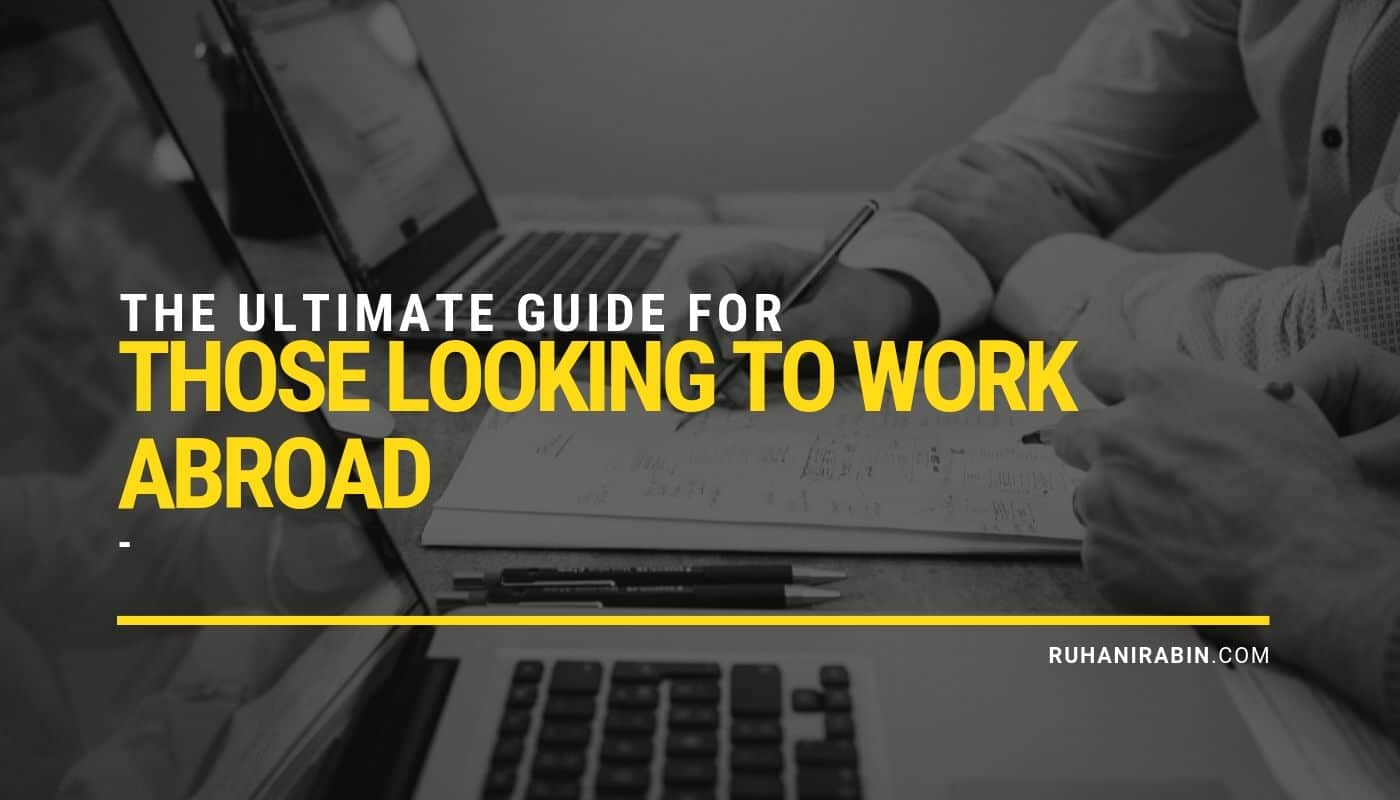The Ultimate Guide for Those Looking to Work Abroad
Finding yourself in a new country can be a difficult situation. As a matter of fact, you will likely struggle with so many things that it is a good idea to prepare yourself so that you have a smooth transition to another nation. To help you with this process, this is a compiled ultimate guide for working abroad.

Working overseas offers an amazing opportunity to witness different lifestyles and various cultures, as well as providing benefits to your career by helping you grow your skill set and become a professional in your industry. However, finding yourself in a new country can be a difficult situation. As a matter of fact, you will likely struggle with so many things that it is a good idea to prepare yourself so that you have a smooth transition to another nation. To help you with this process, we’ve compiled this ultimate guide for working abroad.
Get the Best Updates on SaaS, Tech, and AI
Select your destination with care (or maybe without it)

The whole wide world is within your grasp. When it comes to choosing the country you wish to work in, there are really no boundaries. However, it’s easy to get lost in the abundance of choice and feel overwhelmed. Hence, how do you pick from the entire world? There are three approaches to this matter:
- Chaos – pick a nation by throwing a dart at your globe or world map.
- A perfect fit – research your options to find the one that suits you.
- Preference – you likely already know where you want to go. For instance, a nation or city you always wanted to visit, or maybe a location you read about in your favorite book or saw in a movie.
Although, you may need to also consider some not-so-romantic details. For example, are you thinking about going somewhere where you speak the language already? This can narrow down your choices a lot. You should also determine whether you want to chase summer and go to a hot destination or is the cold weather and snow a perfect fit for you?
Learn about your chosen destination and its culture

It’s easy to have an amazing experience when you’re on vacation. Things aren’t so bright when you’re working and living in another country. There will be taxes and bills to pay, a difficult commute, and many other trivial matters that can turn your working abroad into an unpleasant experience. For example, you might also live a bit further from the beach than you initially planned. Now, this isn’t to say that everything will be worse, but that you should be realistic and not judge your future home through the “vacation lenses”.
It’s wise that you visit your future home before you move and really ask yourself if you can live there. This is also a great time to meet with possible employers (even just for the networking purpose), have a view of the neighborhood, and speak to locals about the current job market and living arrangements.
Ready your paperwork in advance

Most people don’t realize how crucial it is to prepare paperwork before going abroad. Doing otherwise will make you chase down paperwork from your country of origin, turning everything into a nightmare. Ensure you get all references and statements of services from your current job in your home country, as well as from any other job you now do in your working abroad period. These papers seem irrelevant right until you actually need them.
Before you start traveling in your working abroad experience, make sure you have all the necessary paperwork you need for your new job:
- References
- Statements of service
- Resume
- Resources
- Police checks
This also includes everything you require for your visa: bank statements, the actual visa, and anything other than proves ties to your home nation.
Read about possible certifications and diplomas

This is another important part of the paperwork aspect you need to resolve before heading abroad. Depending on your skills, education, and previous work experience, your new home country might ask for additional (language) diploma or certificate. Research what is required for the job and learn how, where and when you can acquire the necessary documents. (This likely means spending more money and time to go where you want.)
When it comes to the English language certification, (A requirement for visa application in Australia, for instance.) the best thing to do is to apply for PTE classes. These classes will prepare you for the PTE Academic English test that can prove your English ability and which is accepted by most major universities as well as by professional associations and government departments.
Have a job before you begin your packing
Living in the present and being spontaneous is amazing, but not so much in regards to your career. So, unless you’re in the middle of a gap year, it is recommended that you secure a job before you pack your belongings and travel to another country.
Most governments aren’t willing to extend a work visa unless you already work there and your employer is willing to sponsor you. Hence, just searching for a job after you travel to your destination could damage your chances with the authorities. Besides, many organizations around the globe offer relocation packages which don’t only take care of the visa issue but also offer accommodation, and whatnot.
Select an employer that can help you navigate the transition
It’s crucial to negotiate a nice relocation package and that your compensation covers the new cost of living. A great employer will not only help you obtain the appropriate visa, but should also offer relocation assistance in the form of a temporary housing stipend, payment for shipping and packing your belongings, help with selling your home, and – depending on the circumstances – job search aid for your significant other.
Moreover, go with a business that will take good care of you in regard to comprehending local taxes, laws, and leasing arrangements, particularly when there is a language barrier involved.
In the end, remember that going for traveling and working overseas isn’t just a nice opportunity to visit other places. You will also have to work a lot. Besides enjoying yourself, you’re there to work hard and generate a positive impact on local and multinational organizations. In the process, you will also learn – about you, about your selected career path, about your host culture, and about the world at large. You will work hard, play hard, and travel far wide.
FTC Disclosure: The pages you visit may have external affiliate links that may result in me getting a commission if you decide to buy the mentioned product. It gives a little encouragement to a smaller content creator like myself.


